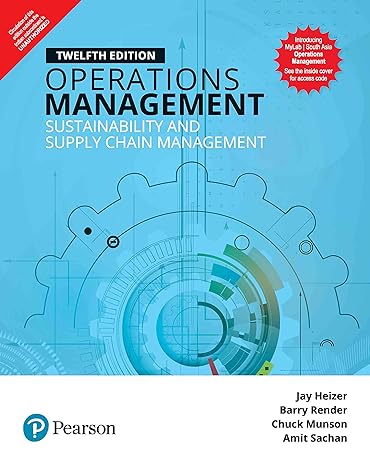D-Mart is a one-stop supermarket chain that aims to offer customers a wide range of basic home
Question:
D-Mart is India’s most profitable and fastest growing large modern retailer. Avenue Supermarts Ltd, which owns and operates hypermarkets and supermarkets retail chain D-Mart, returned a profit of ` 211 crore in 2014–15, higher than Reliance Retail’s ` 159 crore and Future Retail’s ` 153 crore. Its revenue in the same period was ` 6,450 crores, 37.23% more than the previous year’s. Reliance Retail’s revenue grew 21% in the same period. The other Hypermarkets like the Tata Group’s Trent Ltd and Future Retail’s had a decline in revenue due to tough competition. Following are the factors which differentiated D-Mart from its counterparts:
1. The chain offers prices that are 6–7% lower than its competition, no matter where it operates. It sells at a price lower than others by keeping their cost low and running the business effectively.
2. It also differentiates its operational styles from other competitors.
Out of the 65 stores it runs, D-Mart owns 55 properties, saving substantially on rent, which constituted 6–10 % of retailer’s sales. D-Mart also refrains from opening stores inside malls unlike other hypermarkets. This helps in boosting operating cost.
3. When opening a store, D-Mart selects areas neighbouring residential societies, setting an easy catchment area.
4. Costs are further kept low by a no-frills layout without any flashy interior.
5. D-Mart extracts a few brownie points even from its suppliers.
It pays them within 48 hours of delivery, and they, in turn, allow for an additional 2–3 per cent gross margin to the chain, enabling it to keep the prices low at most of its locations.
6. D-Mart has not taken on a lot of debt, unlike its bigger peers and has cut advertising budgets by 30–40 per cent in the last couple of years to save costs. Its debt to equity ratio is 0.65.
The company’s focus is on competing in the basic needs space and on efficiencies similar to what the largest retailers globally have done. The real challenge for the retailer will surface now since it is hoping to expand to more cities in Karnataka and Andhra Pradesh where it is difficult to find stores which match expectations. Its first phase (of growth) has been successful. Replicating it in the next phases will be the challenge. When a firm is a regional player, it will run a people-driven business. But when it goes national, it has to have foolproof and strong processes.
Discussion Questions
1. How has location-based decisions contributed to D-Mart’s success?
2. What has helped D-Mart to keep its cost low and hence increase revenue?
3. Will D-Mart be able to expand its business in other parts of India?
Step by Step Answer:

Operations Management Sustainability And Supply Chain Management
ISBN: 234357
12th Edition
Authors: CHUCK MUNSON & AMIT SACHAN AND . JAY HEIZER , BARRY RENDER






